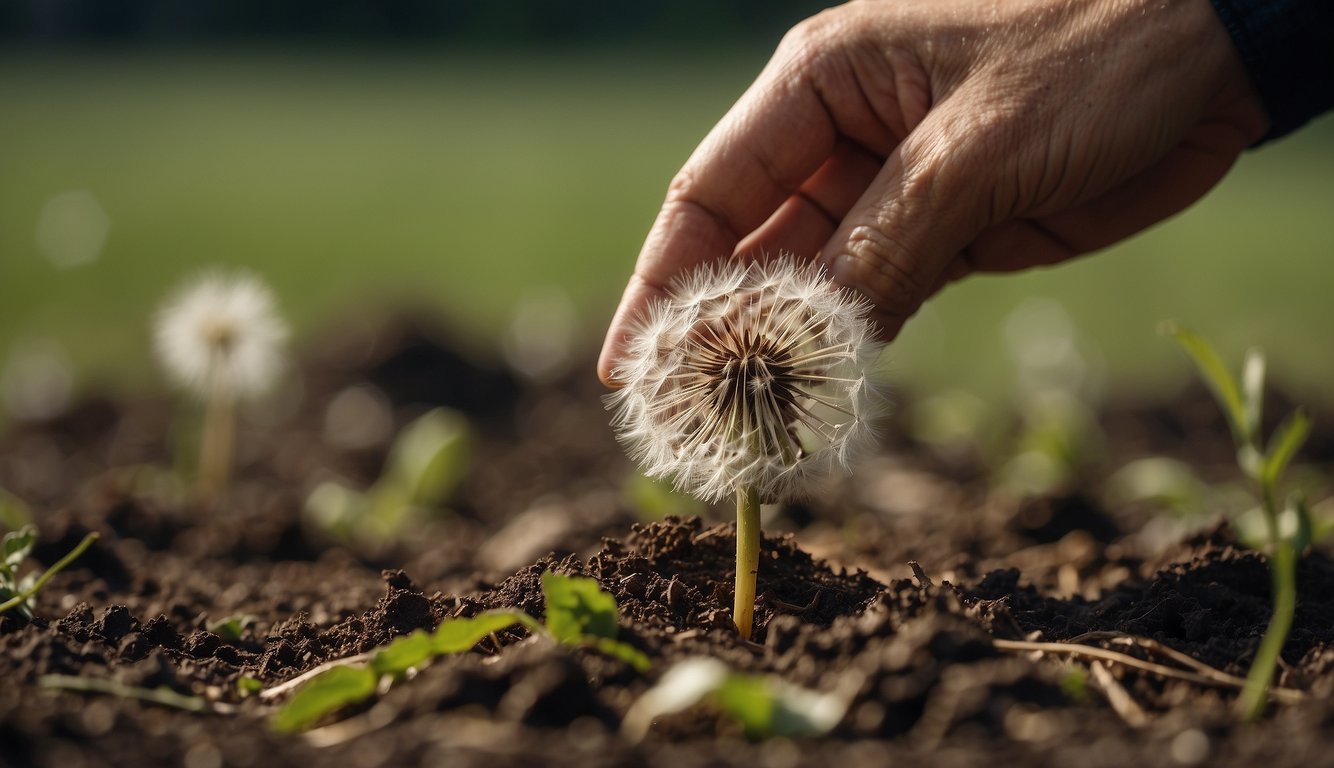TheHerbProf.com is a treasure trove of knowledge for those interested in natural healing and herbal remedies. The website is run by Paul Johnston MD. A naturopathic who has not only received extensive education in the field but also has personal experience in self-healing.
Dandelion root has been used for centuries for its medicinal properties. This herb is known for its ability to promote liver health, fight inflammation, and lower blood sugar and cholesterol levels. Dandelion root is a highly nutritious plant that can provide numerous health benefits.
Dandelion root is rich in antioxidants and contains several vitamins and minerals, including vitamin C, vitamin A, iron, and calcium. It has been used as a natural remedy for a variety of ailments, including digestive issues, skin problems, and joint pain. Some studies suggest that dandelion root may also have anticancer effects.
Overall, dandelion root is a versatile herb that can be used in many different ways to support your health and wellness. Whether you choose to drink it as a tea, take it in supplement form, or add it to your meals, incorporating dandelion root into your routine may provide numerous health benefits.
Dandelion Root Overview
As a naturopath, I have come across many plants that have been used for centuries in traditional medicine. One such plant is the dandelion (Taraxacum officinale), which is known for its medicinal properties. In this section, I will provide an overview of dandelion root and its historical use in traditional medicine.
Botanical Profile
Dandelion is a perennial herbaceous plant that belongs to the Asteraceae family. It is native to Europe, but it has been naturalized in many parts of the world. The plant has a long taproot that can reach up to 30 cm in length. The leaves are basal, and they are deeply lobed. The flowers are bright yellow, and they are borne on a hollow stem that can reach up to 50 cm in height. The plant blooms in the spring and summer, and it produces a fluffy seed head that is dispersed by the wind.
Dandelion root is the root of the dandelion plant. It is brown in color, and it has a bitter taste. The root is harvested in the fall or spring, and it is dried for later use. Dandelion root contains many beneficial compounds, including sesquiterpene lactones, phenolic acids, flavonoids, and polysaccharides.
Historical Use in Traditional Medicine
Dandelion root has been used in traditional medicine for centuries. It was used by the ancient Egyptians, Greeks, and Romans for its medicinal properties. In traditional Chinese medicine, dandelion root is used to treat digestive disorders, such as constipation, bloating, and diarrhea. Now, in Ayurvedic medicine, dandelion root is used to treat liver and gallbladder problems.
In Western herbal medicine, dandelion root is used as a diuretic to increase urine production and as a liver tonic to improve liver function. Dandelion root is also used to treat skin disorders, such as acne, eczema, and psoriasis. It is believed that the bitter compounds in dandelion root stimulate the digestive system and increase the production of bile, which helps to break down fats and remove toxins from the body.
Dandelion root has a long history of use in traditional medicine. Its beneficial compounds make it a valuable herb for many health conditions. In the next section, I will discuss the potential health benefits of dandelion root in more detail.
Nutritional Composition
Dandelion root is a rich source of vitamins and minerals that are essential for maintaining overall health. It contains high amounts of potassium, calcium, magnesium, and iron, which are all important for maintaining healthy bones, muscles, and nerves.
Vitamins and Minerals Content
Dandelion root is an excellent source of vitamin K, which is essential for blood clotting and bone health. A 100-gram serving of raw dandelion root contains approximately 650 micrograms of vitamin K, which is more than the recommended daily intake for adults. It is also a good source of vitamin C, which helps to boost the immune system and protect the body against diseases.
In addition, dandelion root is rich in other vitamins, including vitamin A, vitamin E, and vitamin B-complex. These vitamins play important roles in maintaining healthy skin, hair, and nails, as well as supporting the body’s metabolism and energy production.
Antioxidant Properties
Dandelion root is also known for its antioxidant properties, which help to protect the body against damage caused by free radicals. These harmful molecules can cause cell damage and increase the risk of chronic diseases such as cancer and heart disease.
Dandelion root contains several antioxidants, including beta-carotene, lutein, and zeaxanthin. These antioxidants help to neutralize free radicals and reduce the risk of oxidative stress.
Overall, dandelion root is a highly nutritious food that provides a wide range of vitamins, minerals, and antioxidants. Incorporating it into your diet can help to improve your overall health and well-being.
Health Benefits
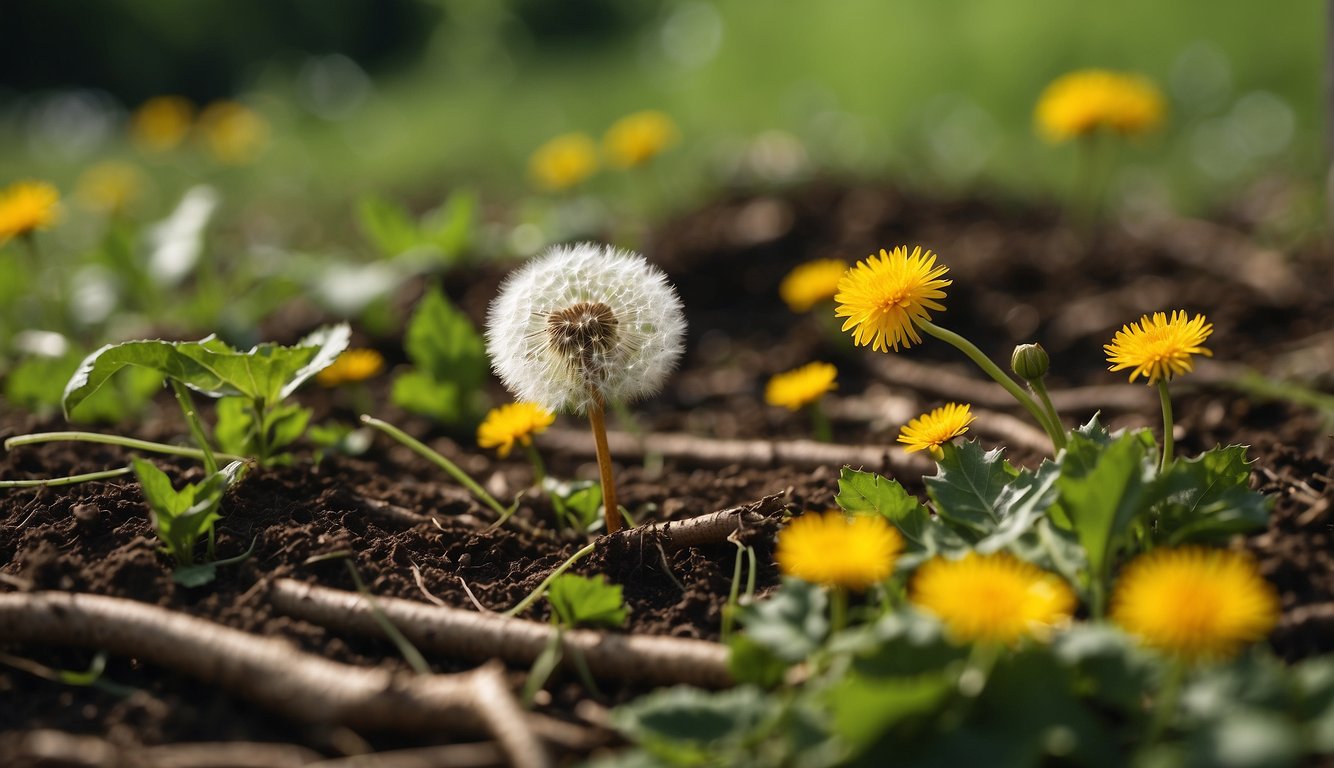
As a nutritional powerhouse, dandelion root offers a range of health benefits. Here are some of the most notable:
Supporting Liver Health
Dandelion root has traditionally been used to support liver health. Studies suggest that it may help to improve liver function and protect against liver damage caused by toxins. Dandelion root contains compounds that support liver detoxification and promote the production of bile, which helps to break down fats and eliminate waste from the body.
Regulating Blood Sugar Levels
Dandelion root may also help to regulate blood sugar levels. Studies suggest that it may help to lower blood sugar levels in people with type 2 diabetes. Dandelion root contains compounds that improve insulin sensitivity and promote the uptake of glucose by cells. This can help to prevent spikes in blood sugar levels and reduce the risk of complications associated with diabetes.
Anti-Inflammatory Effects
Dandelion root has anti-inflammatory effects that may help to reduce inflammation throughout the body. Studies suggest that it may help to reduce inflammation in conditions such as arthritis and asthma. Dandelion root contains compounds that inhibit the production of inflammatory cytokines and promote the production of anti-inflammatory cytokines.
Aiding Digestion
Dandelion root may also aid digestion by promoting the production of digestive enzymes and improving gut motility. Studies suggest that it may help to relieve symptoms of constipation, bloating, and other digestive issues. Dandelion root contains compounds that stimulate the production of gastric acid and bile, which help to break down food and eliminate waste from the body.
Boosting Immune System
Dandelion root may also help to boost the immune system by promoting the production of white blood cells and activating immune cells. Studies suggest that it may help to reduce the risk of infections and improve the body’s ability to fight off pathogens. Dandelion root contains compounds that have antimicrobial and antiviral properties, which can help to prevent and treat infections.
Overall, dandelion root offers a range of health benefits that make it a valuable addition to any diet.
Potential Therapeutic Uses
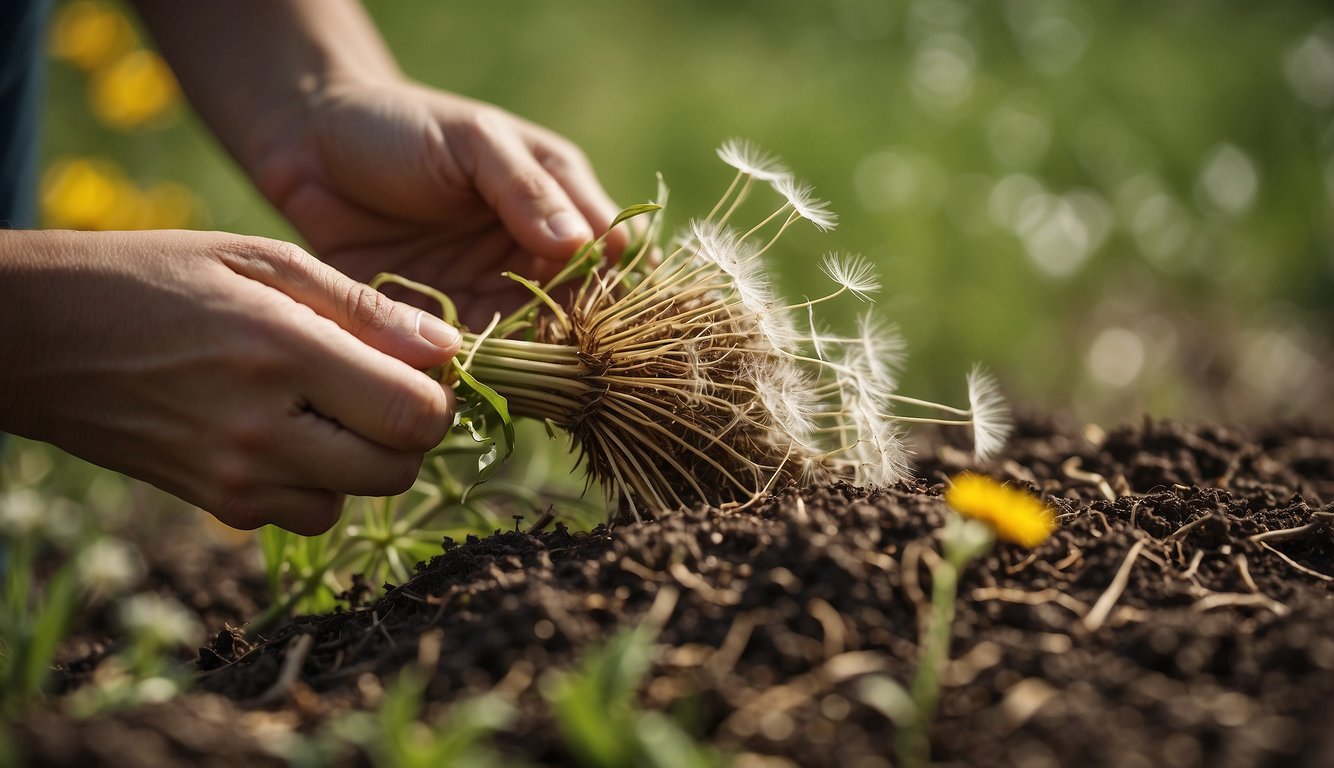
Dandelion root has been used for centuries as a traditional medicine for various ailments. Recent studies have shown that dandelion root may have potential therapeutic uses for several health conditions. In this section, I will discuss some of the potential therapeutic uses of dandelion root.
Cancer Prevention and Treatment
Dandelion root has been found to have anti-cancer properties. According to a study published in the International Journal of Oncology, dandelion root extract was found to induce apoptosis (programmed cell death) in cancer cells. Dandelion root extract has also been found to inhibit the growth of breast cancer cells. These findings suggest that dandelion root may have potential as a natural cancer treatment.
Diabetes Management
Dandelion root has been found to have anti-diabetic properties. According to a study published in the Journal of Ethnopharmacology, dandelion root extract was found to lower blood glucose levels in diabetic mice. Dandelion root has also been found to improve insulin sensitivity and reduce insulin resistance. These findings suggest that dandelion root may have potential as a natural diabetes treatment.
Heart and Blood Pressure Health – Get Your Dandelion Root Benefits Here.
Dandelion root has been found to have potential benefits for heart and blood pressure health. According to a study published in the Journal of Herbal Pharmacotherapy, dandelion root extract was found to have anti-inflammatory and antioxidant properties, which may help reduce the risk of heart disease. Dandelion root has also been found to have a diuretic effect, which may help lower blood pressure.
Skin Health and Healing
Dandelion root has been found to have potential benefits for skin health and healing. According to a study published in the International Journal of Molecular Sciences, dandelion root extract was found to have antioxidant and anti-inflammatory properties, which may help protect the skin from damage and promote healing. Dandelion root has also been found to have potential benefits for wound healing.
The potential therapeutic uses of dandelion root are promising. However, more research is needed to fully understand the mechanisms behind these potential benefits and to determine the optimal dose and duration of treatment.
Dandelion Root as a Diuretic – Get Your Dandelion Root Benefits Here.
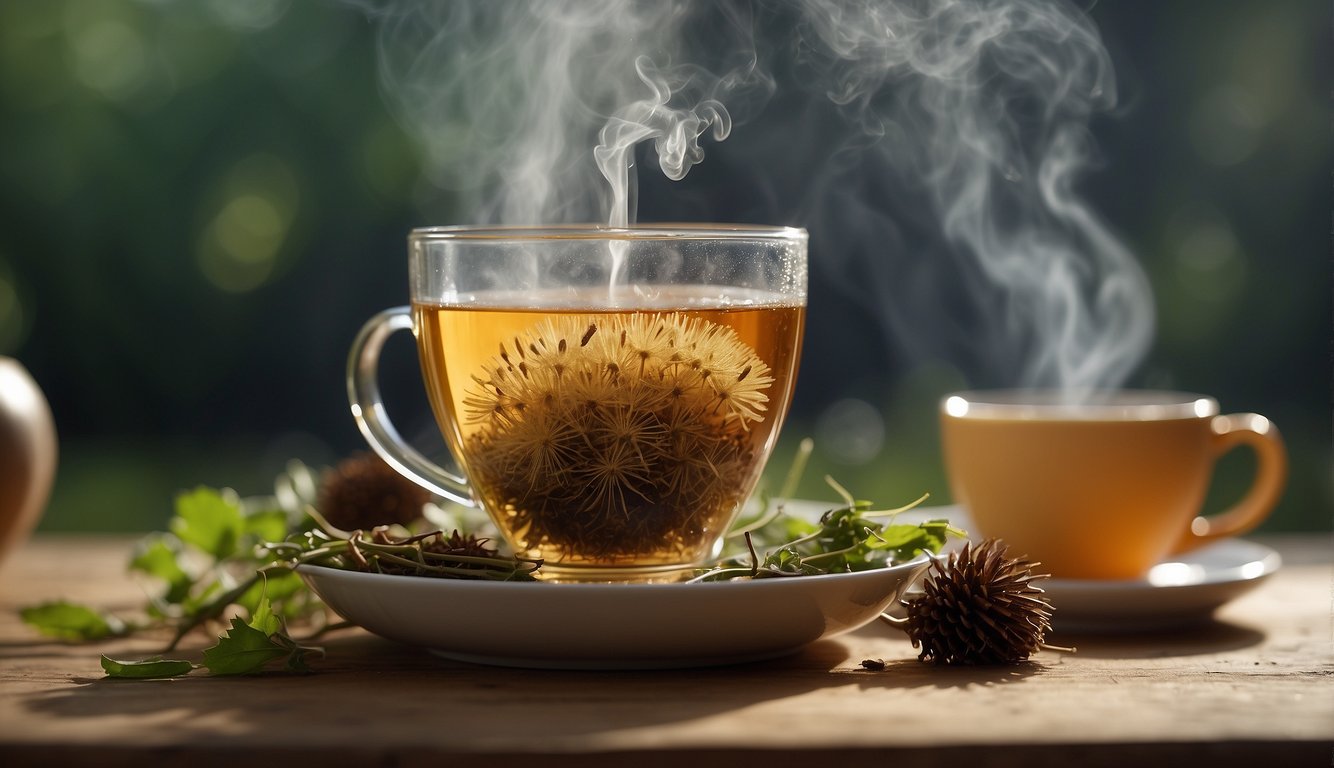
As a natural diuretic, dandelion root has been used for centuries to help increase urine production and flush out excess water and waste from the body. According to Verywell Health, dandelion root is believed to increase urine output by promoting the excretion of sodium and water from the kidneys, which can help reduce bloating and swelling.
In addition to its diuretic properties, dandelion root may also have potential benefits for individuals with kidney disease. According to Dr. Axe, dandelion root may help improve kidney function by increasing urine output and reducing the amount of protein in the urine. However, it is important to note that more research is needed to fully understand the effects of dandelion root on kidney health.
Overall, while dandelion root may have potential benefits as a natural diuretic and for individuals with kidney disease, it is important to consult with a healthcare professional before incorporating dandelion root into your diet or supplement regimen.
Incorporating Dandelion Root
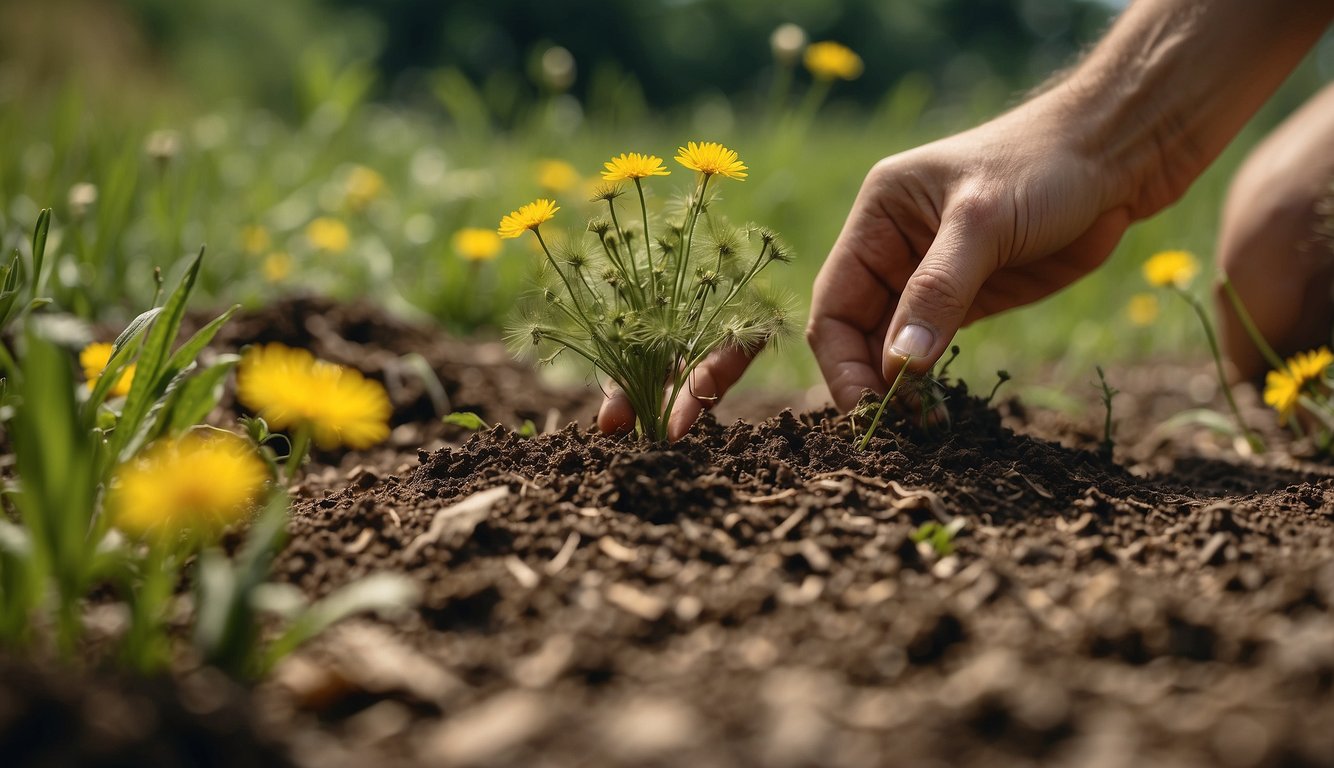
Dandelion root can be incorporated into your diet in various ways. Here are a few ways to include dandelion root in your daily routine:
Dandelion Root Tea and Beverages
Dandelion root tea is a popular way to consume dandelion root. You can buy pre-made tea bags or make your own tea by steeping dried dandelion root in hot water for 5-10 minutes. Dandelion root tea is known to have a slightly bitter taste, which can be balanced with a little honey or lemon juice.
In addition to tea, dandelion root can also be added to smoothies or other beverages. Simply blend fresh or dried dandelion root into your favorite beverage for a nutrient boost.
Supplements and Dosage Recommendations – Get Your Dandelion Root Benefits Here.
Dandelion root supplements are available in various forms, including capsules, tinctures, and powders. When choosing a supplement, make sure to read the label carefully to ensure that it contains pure dandelion root extract.
The recommended dosage of dandelion root supplements varies depending on the form and concentration. It is always best to consult with a healthcare professional before starting any new supplement regimen.
Culinary Uses: Salads and More
Dandelion greens and roots can also be used in culinary dishes. Now, Dandelion greens can be added to salads or sautéed with other vegetables as a side dish. Dandelion roots can be roasted and used as a coffee substitute or added to soups and stews for added flavor.
It is important to note that dandelion greens and roots can be bitter, so it is best to start with small amounts and adjust to your taste preferences.
Incorporating dandelion root into your daily routine can provide various health benefits. Whether you choose to drink dandelion root tea, take supplements, or add it to your meals, dandelion root is a versatile and nutrient-dense ingredient that can support your overall health and well-being.
Safety and Side Effects – Get Your Dandelion Root Benefits Here.
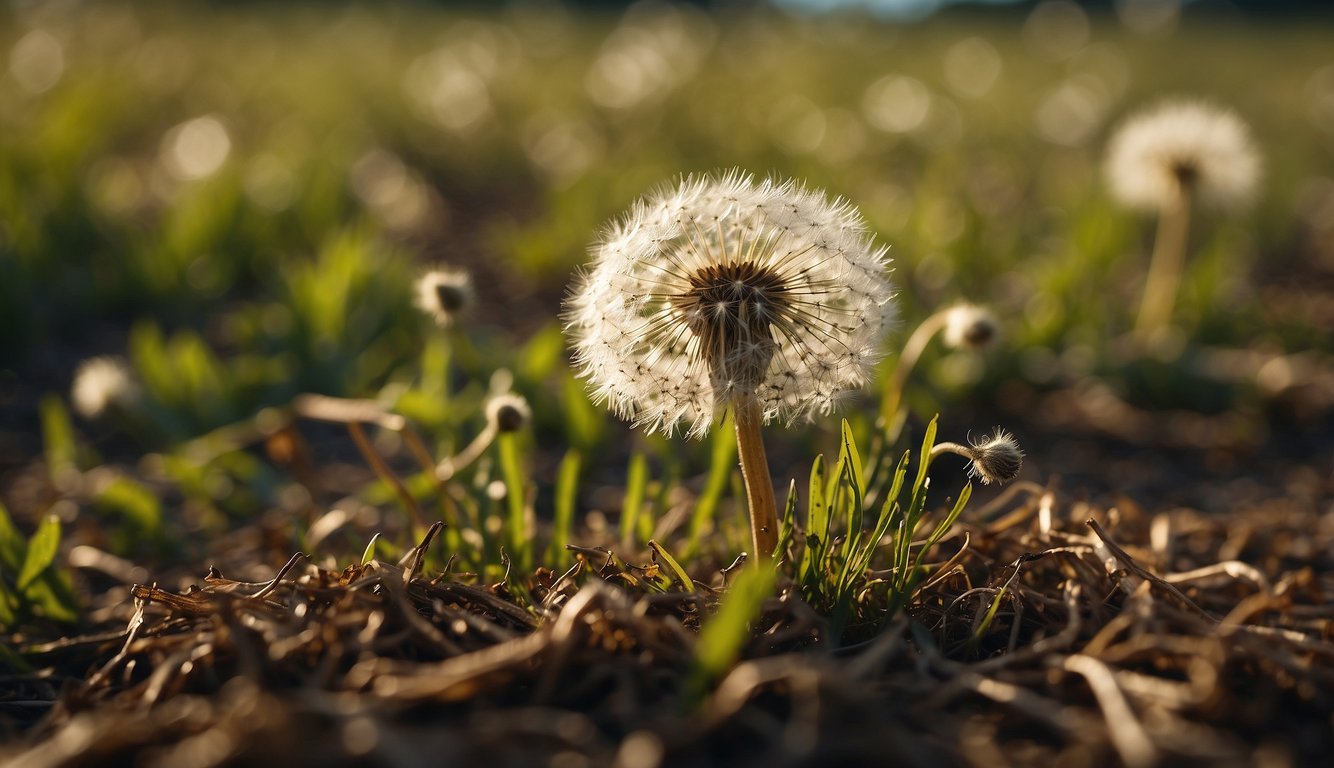
As with any supplement, it is important to be aware of the potential side effects and risks associated with consuming dandelion root.
Allergic Reactions and Interactions
While dandelion root is generally considered safe for most people, some individuals may experience an allergic reaction. Symptoms of an allergic reaction can include hives, itching, and difficulty breathing. If you experience any of these symptoms after consuming dandelion root, seek medical attention immediately.
Dandelion root may also interact with certain medications, including blood thinners and lithium. If you are taking any medications, it is important to consult with your healthcare provider before adding dandelion root to your diet.
Contraindications and Risks
Dandelion root may not be safe for everyone. Pregnant and breastfeeding women should avoid consuming dandelion root due to a lack of research on its safety in these populations.
Additionally, individuals with certain medical conditions, such as gallbladder disease or kidney problems, should avoid consuming dandelion root. Dandelion root may also increase the risk of bleeding in individuals with bleeding disorders.
It is important to note that these risks are generally associated with consuming large amounts of dandelion root. When consumed in moderation, dandelion root is considered safe for most people.
While dandelion root has numerous potential health benefits, it is important to be aware of the potential side effects and risks associated with consuming this supplement. If you are considering adding dandelion root to your diet, it is important to speak with your healthcare provider to determine if it is safe for you.
Dandelion Root Benefits and TheHerbProf.com: A Rooted Relationship!
Dandelion Discoveries: At TheHerbProf.com, we’re all about Dandelion! We delve into its health-boosting properties and its role in herbal medicine.
Herbal Highlights: Learn how Dandelion can diversify your herbal routine. It’s not just a weed; it’s a wellness wonder!
Culinary Creations: Dandelion in the kitchen? Absolutely! We share innovative recipes that bring out the best in Dandelion.
Health and Wellness: We’re all about health and wellness, and Dandelion is a key part of this mission. It’s packed with compounds that promote good health.
Community Connection: Join our community of Dandelion enthusiasts! Share your journey, learn from others, and make some new friends.
So, whether you’re a Dandelion devotee or just starting your herbal journey, TheHerbProf.com is your trusty companion. Dive in, explore, and stay healthy! Check out our home page here!
References:
Little Herb Encyclopedia, by Jack Ritchason; N.D., Woodland Publishing Incorporated, 1995
The Ultimate Healing System, Course Manual, Copyright 1985, Don Lepore
Planetary Herbology, Michael Tierra, C.A., N.D., Lotus Press, 1988
Handbook of Medicinal Herbs, by James A. Duke, Pub. CRP Second Edition 2007
The Complete Medicinal Herbal, by Penelope Ody, Published by Dorling Kindersley
Before You Go – Check the Following Articles!
Frequently Asked Questions – Dandelion Root Benefits
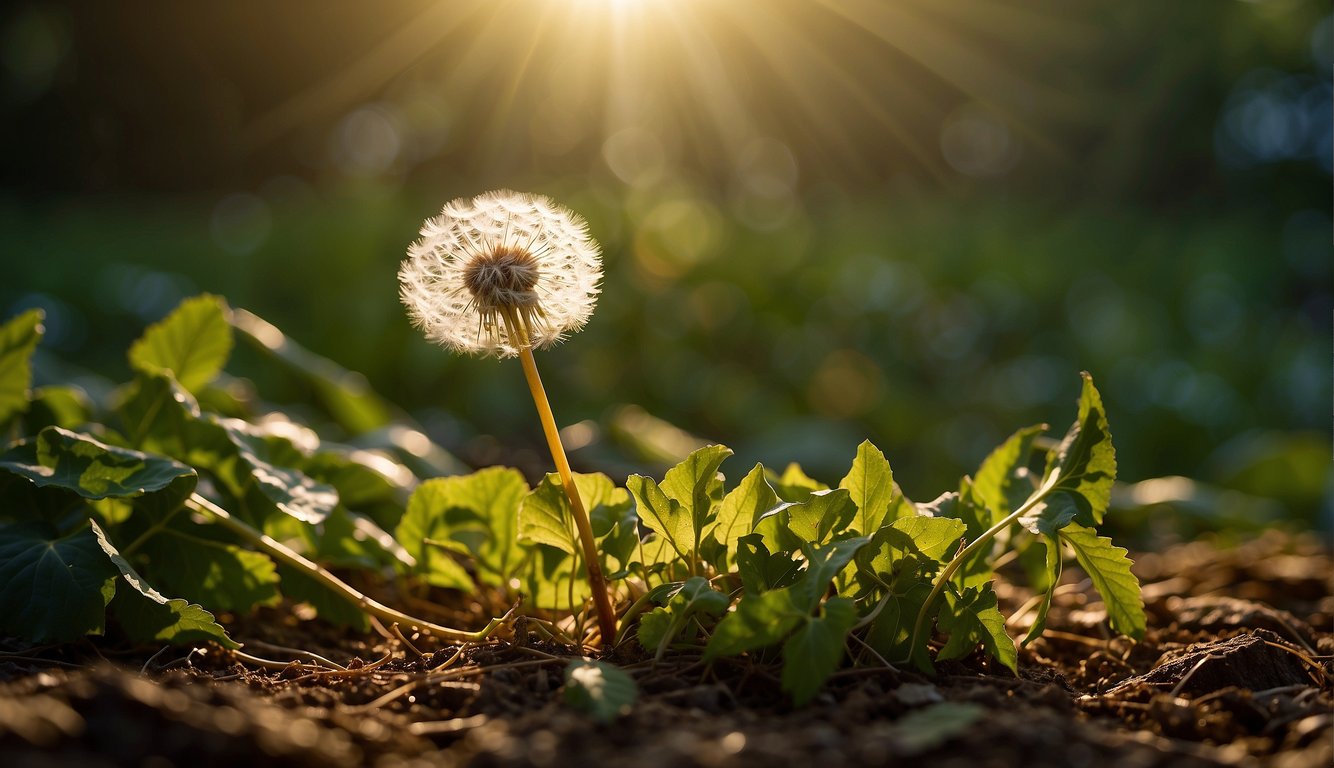
What are the potential benefits of taking dandelion root for the skin?
Dandelion root is rich in antioxidants that can help protect skin cells against damage caused by free radicals and slow down the signs of aging. The root also has anti-inflammatory properties that may help reduce skin irritation and improve conditions such as acne, eczema, and psoriasis.
How may dandelion root tea contribute to overall health?
Dandelion root tea has been used for centuries as a natural remedy for a variety of ailments. It is believed to support liver and kidney function, aid digestion, and reduce inflammation. The tea is also a good source of vitamins and minerals, including vitamin C, vitamin K, and potassium, which can help support overall health.
Can dandelion root aid in natural detoxification processes?
Yes, dandelion root has been shown to support liver function, which plays a key role in the body’s natural detoxification processes. The root contains compounds that may help stimulate the production of bile, a substance that helps remove toxins and waste from the body.
What are the implications of consuming dandelion root for heart health?
Dandelion root may have several benefits for heart health. It has been shown to help lower blood pressure, reduce inflammation, and improve cholesterol levels. These effects may help reduce the risk of heart disease and other cardiovascular conditions.
Are there any notable side effects associated with dandelion root consumption?
While dandelion root is generally considered safe for most people, some individuals may experience side effects such as upset stomach, diarrhea, or allergic reactions. People with certain medical conditions, such as gallbladder disease or diabetes, should also use caution when consuming dandelion root.
Does incorporating dandelion root into your diet help with weight management?
While there is limited research on the effects of dandelion root on weight management, some studies suggest that the root may have diuretic properties, which can help reduce water weight. Additionally, dandelion root tea may help promote feelings of fullness and reduce cravings, which could potentially aid in weight loss efforts. However, more research is needed to fully understand the potential benefits of dandelion root for weight management.
